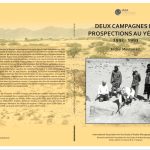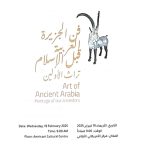Transversal Axis I
Transversal Axis I
The Arabian Peninsula between the end of Late Antiquity and the beginning of Islam
This axis aims to confront the work of archaeologists with that of epigraphists, historians and specialists in political thought to question the birth in Arabia at the beginning of the 7th century, not only of a new religion, Islam, but also of new power structures that will upset administratively, culturally and linguistically countries that extend from the confines of China to Spain. By consulting, in addition to textual sources, material data from recent archaeological discoveries, this axis intends to revise certain theses that have prevailed in research on the beginning of Islam, and whose ideological content or methodological fragility can be overcome by the contribution of several disciplines of the humanities and social sciences.
Beyond skeptical approaches (such as those of Marghilouth and Taha Hussein regarding pre-Islamic poetry or of John Wansbrough and students regarding the dating of the Koran) which started from a methodological postulate consisting in questioning the validity of Arabic and Islamic sources to understand the history of Islam and Arabia, this axis tries to approach these important subjects by making use of all the available knowledge and by creating a space for debate between disciplines who sometimes turn their backs on each other. The “Jâhiliyya” seminar founded and directed by Eric Vallet illustrates the spirit of this axis dedicated to the examination of the way in which the history of Islam was written by certain ancient or contemporary authors, and to the study of the different sources which allow to have an idea as complete as possible on the situation of Arabia before the advent of Islam and the historical conditions which surrounded the birth of this new religion. Other ongoing archaeological projects piloted by researchers associated with CEFREPA (Khaybar) or recent publications by historians and epigraphists (Mounir Arbach, Christian Robin and Alessia Prioletta) go in the same direction and feed reflection on a possible rewriting of certain files or, conversely, the confirmation of the readings adopted by the Muslim authors of medieval times.










